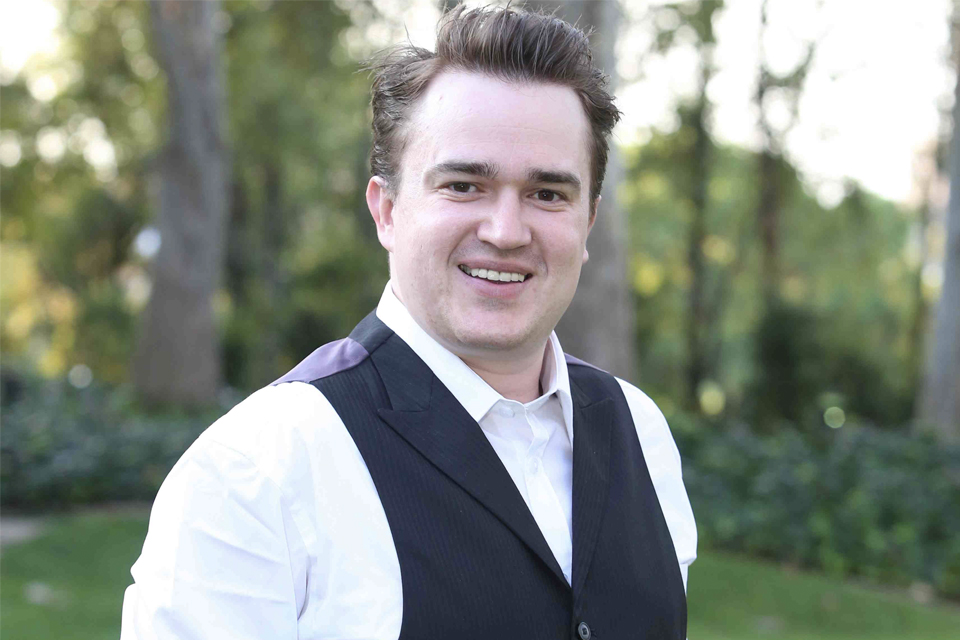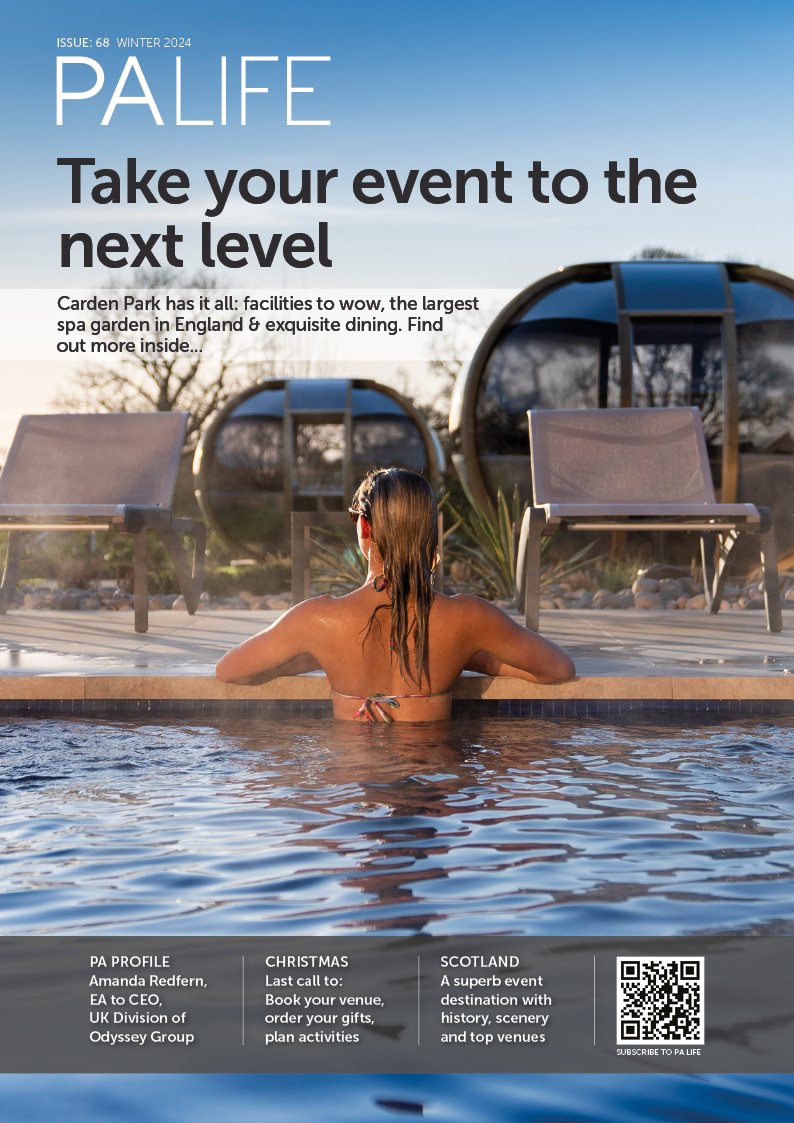As Executive Assistant to Lucy Brazier – the leading authority on Administrative Assistants – Matthew Want has a tough job managing his boss’s diary, as well as living up to the examples she sets to PAs around the world. He tells all to Lisa Carter…
How did you begin your career as an Assistant?
Before I was an assistant, I worked in a garden centre and also ran a taxi company with my father. Lucy came into the office one evening to get a taxi and, while she was waiting, we got talking. I really wanted to get into events, but there weren’t a lot of opportunities where I lived in Shepperton at that time. I said this to Lucy and she said she could help me with that. I thought she was a crazy woman who I’d probably never see again.
Fast forward a couple of months, there was a meeting at the local Chamber of Commerce, and both Lucy and I were there, and volunteered to help with organising the Christmas event in our local village. That event normally had about 600 people singing carols under a tree. The first year we took it over, we closed off the High Street, had around 40 different food stalls, real reindeer – and we had around 8,000 people attend.
At that time, Lucy had only had Executive Secretary magazine for about a year and she asked if I’d like to join her and do some admin a couple of days a week. 18 months later, she asked if I’d become her Assistant. And that’s where it all started.
I never thought I’d be an Assistant, but it’s been a really interesting career path.
What new skills did you have to learn?
One of the main ones was trying not to run before I could walk. When I first started I was 22 and I didn’t have much experience, other than having done some fund-raising. But I wanted to be a top-level Assistant straight away. A lot of people do it – reaching for it before they’re ready.
There’s something new to learn all the time, and particularly over the last eight months. It’s been a complete change for everyone. This time last year, we were hosting live events, now we’re thinking that we may not be able to do them early next year too. We’ve had to learn how to host digital events. And that just shows that an Assistant’s role is changing all the time – and you have to keep up.
What are the most challenging parts of your job?
Back in the old days of travelling, it was planning events and managing Lucy’s travel plans. Last July we had two ExecSecLIVE events back to back in Wellington and Sydney. I organise those, so things like delegates, speakers, etc. While doing that, Lucy was travelling to 10 different countries, so I was managing her travel too. It was a challenge!
With the pandemic, I think that many of us have found that not having to juggle so many things has been a great way to streamline working practices, and to look at priorities. When things go back to normal, I don’t think many of us will want to go back to those old ways. But I also think this period has shown companies that things can work without us all having to go at 100 miles an hour!
And what are the most enjoyable aspects of the job?
Being able to travel, especially going to events and meeting other Assistants from around the world. If it gets to the point where we can’t travel again, at least we have been able to do that. I’ve met so many amazing people who I see as mentors and friends.
How has Covid-19 affected you and other Assistants?
I had to isolate for three months, so that affected my mental health somewhat. Professionally, I’ve gone from travelling and the fast pace of organising live events. We have hosted the ExecSecTech event online which attracted over 1,000 people, but it’s not the same buzz as an in-person event.
Within the Assistant community in general, I know a lot of people have found it difficult working from home. And particularly the Government’s advice of ‘work from home’, ‘go back to the office’ and now ‘work from home’. It’s tough for everyone.
We also know that with the furlough scheme coming to an end, many Assistants have been made redundant, which is awful.
The most important lessons you’ve learnt from Lucy?
Be yourself. Don’t try to run before you can walk. Be genuine. Be up-to-date. And use your network.
What are your top tips?
Time blocking is really useful. I have a list of things to do each day and I’ll stick them in the calendar. So, for example, 9-10am is looking at emails, 11am-12pm I might edit something on the website, etc, etc. It’s really useful because it helps me manage my time, and both Lucy and I know what we’re doing and what the priorities are.
I would also recommend having an email ‘triage’ system. When I started working with Lucy she had 50,000 emails in her inbox. I sat for a week trying to sort them out, but it was unmanageable, particularly with more coming in each day! So we put them all in a folder called ‘Past Help’. Now we have a five-folder system: ‘
Today’ – it needs to be done today ‘
This Week’ – needs to cleared this week
‘FYI’ – emails that don’t need to be actioned, but might be of interest to Lucy
‘Dealt With’ – as the name suggests
‘To Be Deleted’ – this means that Lucy can have a quick look through each day and emails can be restored if something’s been missed
Another key thing is to have a good level of communication with your exec. If things do get to the point where you’re feeling overwhelmed, if you have a good relationship, you can discuss priorities, etc with them.
The full interview can be found in the Autumn Issue of PA Life and please feel free to email Matthew – mwant@executivesecretary.com for a copy of the Email Triage PDF or visit his website.










